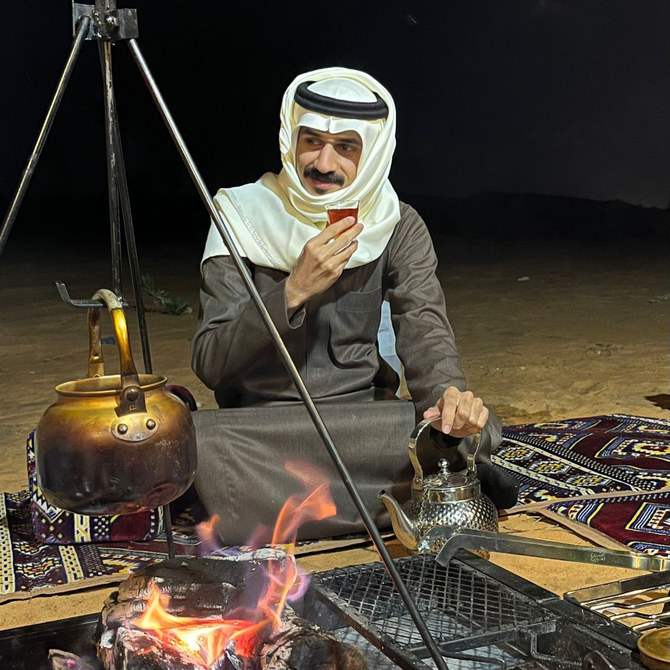MAKKAH: A Saudi influencer is showcasing the Kingdom’s culture of hospitality by highlight the many beverages associated with the country.
From Arabic coffee and tea as a daily staple, to karak tea and ginger milk for cold winters in some Saudi cities, Talal Al-Issa can suggest a drink for most occasions.
He told Arab News: “Each season has its own drink which is served in various ways to adapt to the changing weather conditions.”
The diversity of Saudi beverages came from the geographical and cultural variations of each region, and the social aspect of preparing and sharing drinks helped visitors and tourists to understand the nation’s history, Al-Issa said.
“Saudis, despite their simple life in the desert, countryside, or distant villages, are always keen to provide hospitality services with all authentic aspects and methods. Coffee is our culture and a great pride to hold onto,” he added.
Al-Issa noted that Saudi coffee had become a focal point of local hospitality and traditions, highlighting the culture and identity of regions.
He pointed out that Saudis looked forward to serving drinks to others as a symbol of hospitality, Arabism, generosity, and manners, passed down through generations.
“Coffee and tea form a bridge of communication between peoples.
They are also a symbol of our culture as Saudis. Each country has its own way of serving coffee and tea. However, Saudis are creative in serving their heritage,” he said.
The welcome often given to visitors to Saudi Arabia had “deepened the positive feelings among them and increased their admiration and appreciation for this great country,” he added.
Al-Issa said: “What often catches the attention of visitors to the Kingdom are the various ways in which Saudis prepare coffee and tea.
“Each region of the Kingdom has its own characteristics, which is considered a cultural diversity of the Saudi community. This diversity indicates the deep roots of Saudi Arabia which are considered an extension of the fathers’ and ancestors’ culture and represents a legacy they hold on to despite the rapid development and growth of civilization,” he added.
When serving drinks, Al-Issa usually dresses in traditional clothes to represent local culture.
He said non-Saudis sometimes held stereotypical views regarding clothing, food, and drink in the country, but he felt perceptions were changing.
“This was clearly shown in some films and series due to the lack of channels broadcasting the correct image to people.
“We can now see Saudi elegance reaching all continents, theaters, and fashion shows which are presenting the true Saudi personality and reflecting its elegance, details, and charisma, as it deserves,” he added.




























